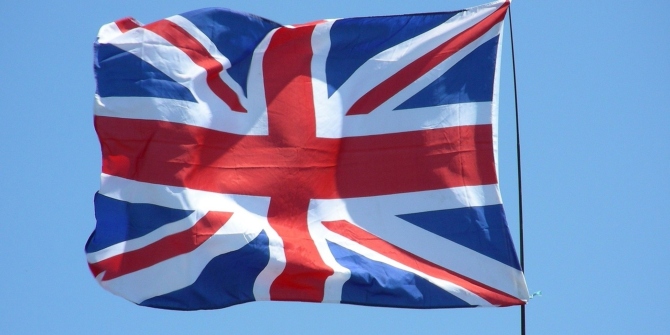
Few nations have been as obsessed with their status in the world as Great Britain. Not surprisingly, the Government Statement at Chequers begins with the words that with its departure from the EU, the UK will ‘begin to chart a new course in the world.’ But can it? In recent research, I assess Britain’s macroeconomic resilience and economic power by examining its external balance sheets. As sovereign power only exists relative to that of other countries, I examine the UK’s balance of payments (BoP) against those of the US.
The flexibility of a nation’s external balance sheets is an outcome of its monetary power. Powerful currencies enable softer budget constraints. The US, issuer of the world’s predominant currency, finances its BoP deficits by selling dollar-denominated securities to the rest of the world, and so bypasses the onerous process of deficit-reduction—which may involve devaluation, spending cutbacks, and trade protectionism. But BoP flexibility is not just a matter of monetary power. It could also be the outcome of a sovereign state’s standing in the global régime.
While sterling has long lost its imperial reign as the ‘world’s money’, as a global financial hub Britain draws in substantial foreign capital (6 per cent of GDP in 2016). This continued access to external financing along with income generated from foreign investment has allowed the country to postpone external deficit reduction. Britain’s balance sheets also exhibit some of the same features associated with American ‘exorbitant privilege’—the capacity to run external deficits without deleterious consequences. These more subtle characteristics that lend themselves to BoP stability include: compositional differences in a nation’s foreign assets versus foreign liabilities, so that own-currency depreciation boosts the aggregate value of foreign assets; positive net foreign income earnings (despite a much larger stock of foreign liabilities than assets); and a higher rate of return on foreign assets compared to foreign liabilities.
The transatlantic economies occupy the pinnacle of global financial power. Viewing the Anglo-American axis through Britain’s external balance sheets, reveals the US as the top destination for foreign investment by UK residents: almost a quarter of all UK foreign assets are housed in the US. The US holds about 26 per cent of all foreign-owned assets in the UK. In financial services, US residents own almost half of all foreign-owned domestic UK assets.
Compared to the US, however, UK external balance sheets are disproportionately much larger and more volatile. At their peak in 2014, US foreign assets amounted to 143 per cent of GDP. In contrast, at their apex in 2008, UK foreign assets and liabilities each topped more than 700 per cent of GDP.
Britain’s post-war current account deficits have largely been shaped by its manufacturing goods deficit. More recently though, foreign income receipts have played a larger role. In 2013, the UK current account deficit reached an all-time high of almost 7 per cent of GDP driven by a sharp dive in net foreign income receipts. Right after the Brexit referendum in June 2016, sterling dived to a 30-year low against the dollar. In July 2016, the Bank of England declared the UK current account deficit one of the five ‘main risks’ threatening macroeconomic stability.
The reemergence of the BoP as a policy constraint marks a noticeable shift. While the BoP concern had dogged much of postwar British economic policy, as ideational perspectives regarding Britain’s place in the international economic order evolved, so did conceptualisations of the country’s external budget constraint. By the 1990s, current account deficits were no longer considered deleterious. Transatlantic policymakers embraced a laissez-faire stance: so long as they were financed by capital inflows, trade deficits were deemed unproblematic. The next decade witnessed a dramatic increase in US and UK trade deficits.
In hindsight, a consequence of the economics literature describing these ‘global imbalances’ was to shift focus away from the trade, services, and income flows (known as the current account) towards asset stocks. Particularly highlighted here were the considerable impact of valuation effects (changes in currency and asset prices) on a country’s stocks of external assets and liabilities. Such valuation losses from dollar appreciation following the 2008 crisis have been referred to as ‘exorbitant duty’ or the underbelly of exorbitant privilege.
For some, valuation losses amount to wealth transfers out of the US. Others broadened this ‘wealth transfer’ thesis to argue that valuation losses amounted to declining sovereign monetary power. From this reductive perspective, an improvement in valuation gains signals strengthened sovereignty. In 2016, valuation gains from sterling depreciation inflated UK foreign assets spectacularly reversing the UK’s net foreign asset position (foreign assets – foreign liabilities) from -18 to 24 per cent of GDP. In theory, these upward asset revaluations (via the wealth effect) may partially explain why the UK economy performed above expectations despite post-Brexit uncertainty. But economic growth the following year was only 1.8 per cent, the lowest it had been in half a decade.
Financial globalisation — where the profit-seeking activities of transnational firms distort GDP and trade data — requires treating nation-based statistics with some skepticism. Given the complexity and uncertainty involved, microanalyses that focus on just one measure of the BoP (such as valuation effects) are bound to misrepresent. Preferred instead are more multi-faceted approaches to interpreting BoP stability which are framed by political-economic considerations such as a country’s place in the international economic order.
So, just how resilient are the UK balance sheets in the face of external shocks? Brexit itself will manifest as a negative supply shock. Britain’s trade with the EU constitutes almost half of its total foreign trade, but the UK currently stands to lose the many advantages of participation in the single market. These include passporting rights as well as economies of scale reaped by British firms from their Europe-wide networks. Recall that for some political economists, adjustment mechanisms include retractions in spending, currency devaluation, and trade controls. The lead up to Brexit indicates that Britain’s capacity to delay dealing with its external deficit has diminished. Both devaluation and spending cut-backs—in fact, an entire decade of austerity under the Conservatives—have come to pass. Brexit itself, with its restrictions on the free movement of labour and goods, will represent the most draconian of BoP adjustment mechanisms.
The underlying conditions — sectoral imbalances, stagnant gross capital formation, dismal wage and productivity gains, household indebtedness, and worsening inequality — in the British economy are unfavourable. The government’s response (also evident in the Chequers statement) has been to safeguard the finance and related professional services (FRPS) sector by ‘provid[ing] regulatory flexibility where it matters most for the UK’s services-based economy.’
Crafting the City of London as a playground for global finance has been a long-standing vision of the British establishment. The FRPS does generate more net exports (around 4.5 per cent of GDP) than all other trade surplus sectors combined. However, given that the FRPS sector comprises just 11 per cent of UK GDP and only 7 per cent of UK employment, pinning British prosperity to the continued success of FRPS is a mistake. Needed instead are industrial policies that promote broad-based wage and employment growth along with BoP stability. If not, Brexit, coupled with directionless economic policy, will leave the British economy adrift for quite some time.
♣♣♣
Notes:
- This blog post was originally published on LSE British Politics and Policy. It’s based on the author’s paper Finance, power, and the British balance of payments, International Review of Applied Economics, August 2018.
- This blog post gives the views of its author(s), not the position of LSE Business Review or the London School of Economics.
- Featured image credit: Photo by skeeze, under a CC0 licence.
- When you leave a comment, you’re agreeing to our Comment Policy.
 Mona Ali is an associate professor in the department of economics, State University of New York at New Paltz.
Mona Ali is an associate professor in the department of economics, State University of New York at New Paltz.






The UK has a long running balance of trade deficit with the EU (both goods and services combined) – since the 90’s at least. On top of that it has to pay billions of pounds annually to belong to the protectionist club. It is doing better with the rest of the world and in fact its trade with the EU is diminishing, while trade with the rest of the world is growing. . Do you not think that in those circumstances, the UK might actually be better off outside the EU trading on WTO terms with it, while doing FTA’s with the rest of the world?